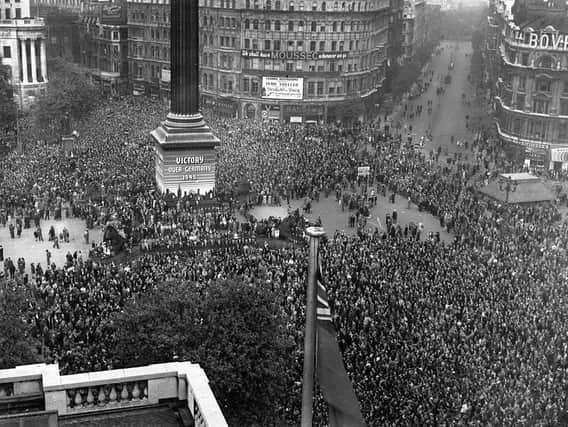Former Advertiser reporter examines legend that Luftwaffe spared Rugby because it was home to Hitler's ex-lover


Back in the time when I was a young reporter doing the rounds in and about Rugby, I occasionally heard a story that these days might well be regarded as an urban myth.
It went like this. The reason why Adolf Hitler’s Luftwaffe didn’t target Rugby during the Second World War was because his former lover – the aristocrat Unity Mitford – was living in the vicarage at Hillmorton.
Advertisement
Hide AdAdvertisement
Hide AdIt’s an interesting idea, to say the least. And there is no doubt that as bombs rained down on British cities during the crisis year of 1940, Rugby was inexplicably spared a full-blown Blitzkrieg.
Other than a string of explosives scattered by a lone raider along the railway line north of the town, and perhaps a few elsewhere, Rugby escaped the worst.
Despite my researches, I have never found anything to back up this theory. Yet the locations of heavy industry vital to the British war effort – such as the British Thomson-Houston works (BTH) – must surely have technically made the town a tempting target.
So how come Rugby avoided the wrath of Goering’s bomber fleets?
Advertisement
Hide AdAdvertisement
Hide AdThere is also no evidence that society girl Unity Mitford was Hitler’s lover, although there is little doubt that she adored the tyrant, and was often photographed in his company during the pre-war years.
Of course, nearby Coventry was not so fortunate. This year marks the 80th anniversary of the infamous raid that saw nearly 500 German bombers destroy much of the city, including the mediaeval St Michael’s cathedral.
My late father was on duty with the fire service that November night and remembered being sent to help fight the fires that engulfed the city.
Years later, he recalled that such was the illumination from the conflagrations that on reaching Brandon, the lights on the fire engines were turned off. For despite being the middle of the night, it was as bright as day, he said.
Advertisement
Hide AdAdvertisement
Hide AdFor miles around, people watched as the finest mediaeval city in England was consumed by fire. And when morning came, the grim reality of what had happened became plainly evident.
For miles around, the surrounding countryside and people’s homes were coated in ash from the burning city. And all these years later, the destruction of Godiva’s town still remains a talking point.
One of my neighbours, who had fought in the First World War, had been on Home Guard duty at the top of Churchover Holy Trinity Church tower on that moonlit night, and watched as the bombers came over in waves, the sound of their engines combining to produce one cacophonous and terrifying constant drone.
In the days that followed the attack, refugees flooded out of the stricken city, many being billeted in people’s homes across the Rugby area. A number came to my home village of Churchover, one of whom was a woman who regularly babysat me as a child.
Advertisement
Hide AdAdvertisement
Hide AdEthel Golder – known to me as ‘Auntie Go-Go – had witnessed the awful sight of her husband Alf being killed by the blast from a German bomb. Widowed in an instant, she came with her young daughter Sheila to Churchover, where she was sent to live with widower George Hirons, who was struggling to bring up two young children while working full-time as a farm labourer.
I knew him as ‘Uncle’ George and there are many references to him in my book Beef Cubes and Burdock: Memories of a 1950s Country Childhood which features stories about village life in those days.
Another refugee who arrived in Churchover as a child was the late Arnold Weinstock, who went on to became a leading industrialist, becoming head of AEI-GEC, the successor company to the BTH.
Weinstock dominated the British electrical industrial scene for years. Feared and admired in equal measure, he was knighted by Prime Minister Harold Wilson in 1970 and subsequently ennobled by Margaret Thatcher.
Advertisement
Hide AdAdvertisement
Hide AdThoughts about Weinstock are mixed. My uncle Norman Read, a skilled electrical worker, was made redundant by him in 1967, along with scores of other Rugby people.
Weinstock had gained a grim reputation for slimming down workforces and I readily recall my relative bitterly reflecting on the injustice of how someone who had served their country a mere two decades earlier could be treated in such a way…
There will still be Rugby people around today who remember the night north Warwickshire was subjected to the full force of Adolf Hitler’s Luftwaffe.
And there may also be a few who perhaps remember seeing the dictator’s friend Unity Mitford out and about in nearby Hillmorton as the tyrant went about his evil work of destruction and death.
John Phillpott was a reporter on the Rugby Advertiser from 1965 to 1969. His new book about his time on the paper, titled Go and Make the Tea, Boy! is out soon.